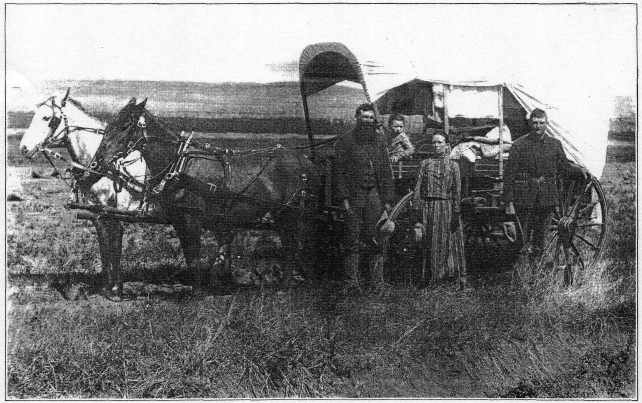| 306 | NEBRASKA HISTORY MAGAZINE |
I take charge of his work at the Crow Agency in his absence which I did and during my stay "White Swan" an old Indian Scout made his home with me. He was a good Indian and I befriended him in many ways.
White Swan was with General Custer as a scout and on the battlefield was shot down with Custer's men. The Indian squaws pounded him on the head, broke his jaw and flattened his forehead, yet he was able to crawl a quarter of a mile to the river and laid hid in the brush. He was never able to talk afterwards. Four years later from the time I was at the agency White Swan died, and at the time of his death he willed to me the only thing of his earthly possessions, a "peace pipe" that he had made out of the pipe stone rock gotten at Pipe Stone, Minnesota. I still have the pipe and prize it in memory of him.
Third -- I will never forget the earnest pleading of some Indian men, who called on me and wanted that I should go to their camp, build a church for them, and preach to their people. Of course I could not do that.
I would also like to relate the work and accomplishment done for other tribes visited but space will not permit.
The Frontier Years of Drouth.
The years of 1894‑96 a drought passed over the states of Nebraska and North and South Dakota. I was called upon to distribute food, clothing and medicine to the needy. I had ten counties in charge. Through the solicitation of Rev. Addison P. Foster of Boston, Superintendent of the American Sunday‑School Union for the New England States, the noble and generous people in those states sent to me for the distributions, money, checks, groceries, clothing, etc., amounting to $25,000.00 in value. More than 2,000 families were visited and helped. There were many
The drouth decade in the plains region was from 1890 to 1900. The severe drouth in western Nebraska began in 1890. In that year and in 1894 the corn crop was a failure and other crops nearly so. Suffering was intense on the western plains. Thousands of homesteaders abandoned their claims and never returned. I visited many frontier homes, often finding children with so little clothing they were kept out of sight. Many went barefooted through the winter. The truth has not yet been fully told of the hardships during this drouth period.

Early Homesteaders in Loup Valley. Photo 1886. Butcher Collection in Nebraska Historical Museum.
307
NEBRASKA HISTORY MAGAZINE |
307 |
peculiar incidents connected in the distribution for the sufferers.
Once I had traveled all night to reach a point of distribution at Lynch, Nebraska. I took supplies for fifty families in that direction. It was Sunday morning and my Gospel tent was set up for holding meetings. Early in the day the people came and supplies were issued, with other things a sack of flour was given to each family represented. The sacks of flour were numbered and placed in rows in the tent for seats during the first meeting and the person to whom a sack of flour was issued received a corresponding number, and was entitled to sit on the sack during the service, and if he failed to occupy it then he forfeited his flour.
No Sermon, No Flour.
About the time the meeting was to commence, a man came to me and said that he lived several miles away and asked to be excused from staying at the service. I told him that it was his privilege to go, but he could not take the sack of flour. I asked him if he was a Catholic and he said that he was. I told him that church relationship cut no figure in the matter of starvation, and the only way for him to take home with him the sack of flour was for him to go in the tent and sit on the same during the service. He saw that there was no alternative so he took his seat with the others. When the service was over, he came to me and said it was the first Protestant meeting he ever attended, and that he was glad I had held him to my resolution, for he would return home less prejudiced than when he came.
I had to be rigid, for many persons wished to evade complying to my rules of issue. I required everyone applying for help to fill out a blank which I had, making a full statement of the number of persons in the family and present means of support. Under no condition was any money given to an applicant, and a record was kept of everything issued.
One Dog Enough for Frontier Family.
In making an issue at Fairfax, South Dakota, an acquaintance of mine with others made application. I gave
|
© 2004 for the NEGenWeb Project by Ted & Carole Miller |
||